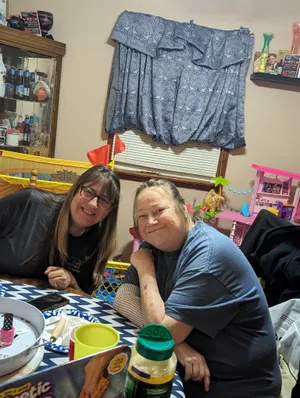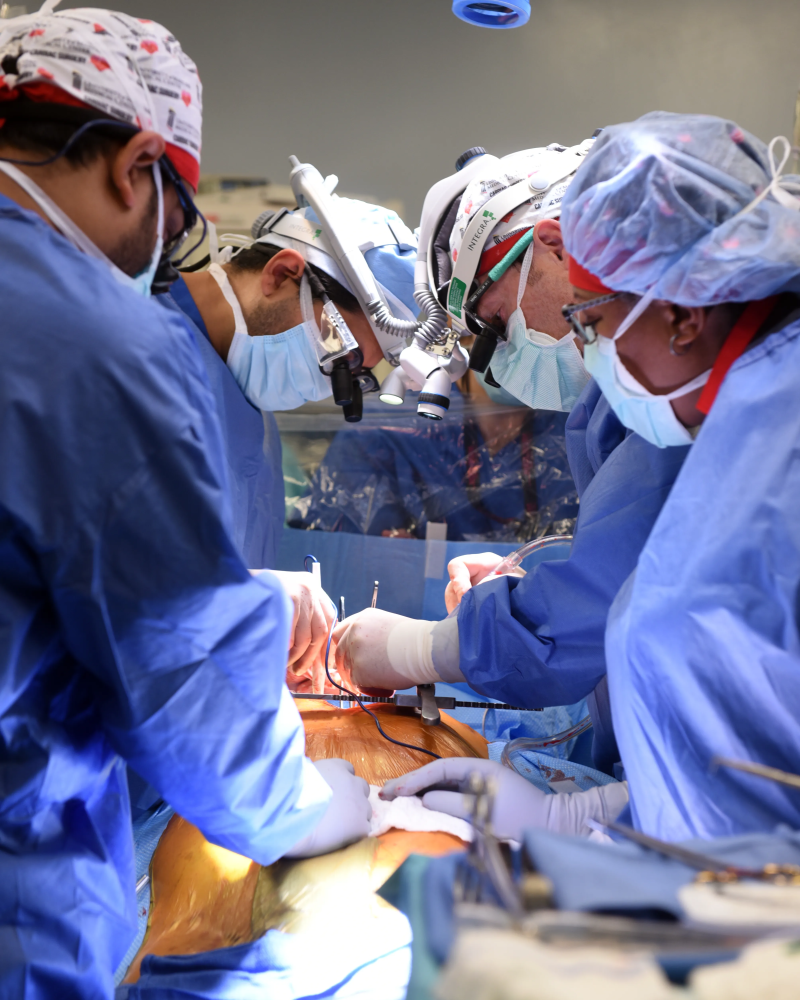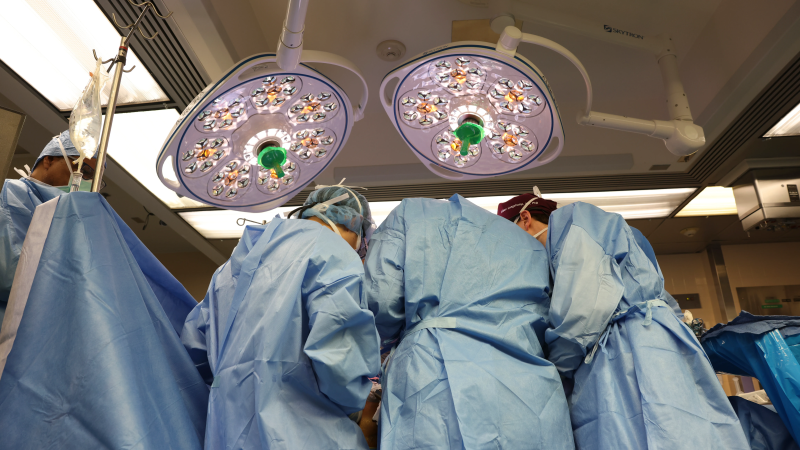Pig organ transplants are 'not going to be easy,' researcher says after latest setback.
Lisa Pisano, the fourth person to ever receive an organ from a pig, had to have the kidney removed after doctors decided it was doing more harm than good.
The other three patients who have received pig organs, two who lived with pig hearts and one with a pig kidney, all died within eight weeks of their surgeries.
All three were quite ill and chose the experimental procedure as a last hope. But the three deaths and now this removal represent a setback for the field of xenotransplantation, just as it seemed poised to finally become a reality.
For at least four decades, researchers have worked to understand the human and animal immune systems well enough to make organs transplantable across species.

Researchers have hoped that using organs from pigs would address the shortage of human organs available for transplant. Right now, more than 100,000 people are waiting on organ transplant lists, mostly for kidneys, and many more, like Pisano and the other three patients who volunteered for the pig organ transplants, never qualified to be on the lists.
The pigs whose organs were used for transplant have gene edits to make them less likely to be rejected by the human immune system. Researchers have said they are close to requesting Food and Drug Administration approval to begin clinical trials with the pig organs, however, it's not clear whether these deaths and the removal will delay such approval.
All four patients who've gotten pig organs were approved as one-off situations, for people who were otherwise out of treatment options.
None of the four suffered an immediate rejection and rejection seems to have been the cause of only one of the deaths – heart transplant patient Lawrence Faucette, 58, who died about six weeks after his transplant at the University of Maryland Medical Center.
The first patient, David Bennett Sr., 57, transplanted in Maryland in 2022, was found to have a pig virus in his transplanted heart, which may have contributed to his death.
Richard Slayman, 62, the first person to receive a pig kidney, died suddenly, nearly two months after his procedure at Massachusetts General Hospital. He is the only one of the patients healthy enough to have been released from the hospital.
Dr. Tatsuo Kawai, professor of surgery at Harvard Medical School and the chair of transplant surgery at Mass. General, said he saw Slayman the morning of his May 11 death and he seemed "completely fine." He walked 250 yards between the clinic and the hospital twice that day, so his death that night, of an apparent heart attack, was "so unexpected."
Although Slayman had suffered a series of health problems before his Mar. 16 transplant, Kawai, who treated him for more than a decade, had been confident of his continued well-being. "I was thinking he can go years," Kawai said.
Kidney was 'no longer contributing'
Pisano, 54, received an artificial heart pump on April 4 and the pig kidney in place of her own failing organ on April 12.
Doctors at NYU Langone Health, where her earlier procedures were performed, decided on May 29 to remove the genetically engineered pig kidney ‒ 47 days after the transplant ‒ and put her back on dialysis.
"On balance, the kidney was no longer contributing enough to justify continuing the immunosuppression regimen," Dr. Robert Montgomery, who directs the NYU Langone Transplant Institute said in a statement.

The combination of the heart pump, called a left ventricular assist device, or LVAD and the kidney, "resulted in multiple episodes where the blood pressure she could generate" was not enough to provide adequate blood flow to the kidney, which over time reduced its ability to function, according to Montgomery. "A recent biopsy did not show signs of rejection, but there was significant injury to the kidney from episodes of insufficient blood flow."
Montgomery said he and his team will study the removed pig kidney to get a better understanding of why this happened.
In the meantime, he said, Pisano, a New Jersey grandmother, "is in stable condition after the surgery and her LVAD is functioning."
Getting the pig kidney enabled her to come off dialysis long enough to become a candidate for the LVAD, which saved her life, Montgomery said.
The field responds
A number of experts in the field of xenotransplantation said work would continue despite the deaths and setbacks.
"I don't think anything has changed dramatically. This experience certainly highlights that it's not going to be easy," said Dr. Alfred "Joe" Tector, a transplant surgeon at the University of Miami, who has not been involved in the human trials, but has worked in the field for decades.

It's crucial to keep making modifications to the pigs used for the transplants, said Tector, who is working on that, as well as carefully choosing patients who don't have existing antibodies to the pigs.
Patient selection will be key going forward, according to Kawai and Dr. Muhammad Mohiuddin, who co-led the University of Maryland Medicine transplant teams. The four patients who have received transplants all had quite serious health problems.
Mohiuddin hopes the Food and Drug Administration will allow his team and others to transplant patients who are less sick but still ineligible for a human organ transplant, perhaps because they have already received more than one prior transplant.
"I'm sorry for this loss," Mohiuddin said about Pisano having the organ removed, "but it's a great learning opportunity."
For his part, Montgomery praised Pisano for volunteering to receive the pig kidney.
"Her strength and bravery in the face of adversity inspires and drives us as we continue pursuing the hope and promise of xenotransplantation," he said in a statement. "Lisa knew the world would learn a great deal through her altruism, and we will apply what she has taught us as we seek to make xenotransplantation a solution for the inadequate supply of human organs."
Karen Weintraub can be reached at kweintraub@usatoday.com.
Disclaimer: The copyright of this article belongs to the original author. Reposting this article is solely for the purpose of information dissemination and does not constitute any investment advice. If there is any infringement, please contact us immediately. We will make corrections or deletions as necessary. Thank you.




